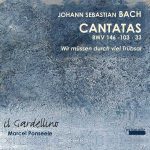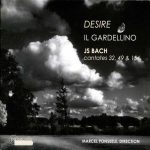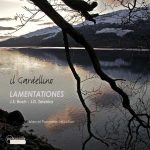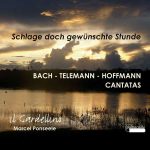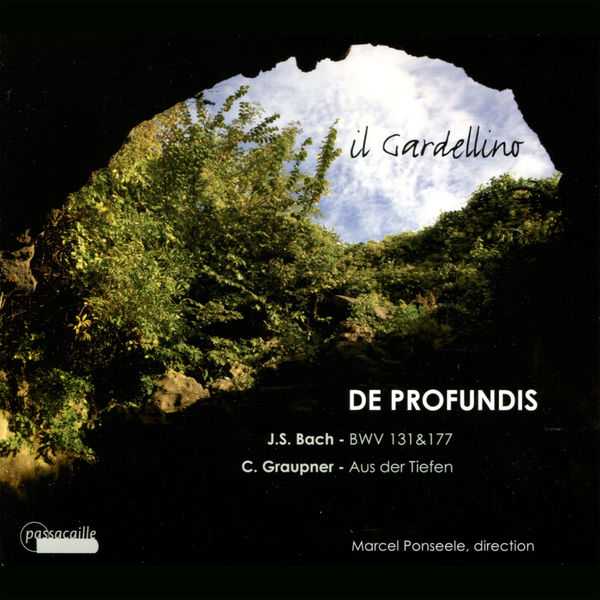
Composer: Johann Sebastian Bach, Johann Christoph Graupner
Performer: Il Gardellino, Caroline Weynants, Damien Guillon, Marcus Jullman, Lieven Termont
Conductor: Marcel Ponseele
Format: FLAC (tracks)
Label: Passacaille
Catalogue: PAS969
Release: 2011
Size: 295 MB
Recovery: +3%
Scan: cover
Bach: Cantata BWV177 ‘Ich ruf zu dir, Herr Jesu Christ’
01. Coro: “Ich ruf zu dir, Herr Jesu Christ”
02. Aria: “Ich bitt noch mehr, o Herre Gott”
03. Aria: “Verleih, daß ich aus Herzensgrund”
04. Aria: “Laß mich kein Lust noch Furcht von dir”
05. Chorale: “Ich lieg im Streit und widerstreb”
Bach: Cantata BWV131 ‘Aus der Tiefe rufe ich, Herr, zu dir’
04. Chorus: “Aus der Tiefen rufe ich, Herr, zu dir”
05. Arioso: ” So du willst, Herr, Sünde zurechnen”
06. Chorus: “Ich harre des Herrn”
07. Aria: “Meine Seele wartet auf den Herrn
08. Chorus: “Israel hoffe auf den Herrn”
Graupner: Aus der Tiefen rufen wir, GWV 1113 / 23a – Christoph Graupner
09. Chorus: “Aus der Tiefen rufen wir”
10. “Wenn aber kommt einmal”
11. Chorus: “Brunnquell der Gnaden”
This release is part of a set of Bach cantata recordings by the Belgian group Il Gardellino and director Marcel Ponseele: not an entire new Bach cantata cycle but a set of thematically oriented recordings that may also include works by other composers. “De profundis” (from the depths) offers three cantatas based on Psalm 130, which begins with the words “From the depths I cry to thee, Lord” and was translated into German in several ways. The overall idea is close to that of John Eliot Gardiner’s cantata cycle, where cantatas were performed during their liturgically appropriate weeks; Ponseele’s approach is warm, text-centered, and reverential in tone. His ensemble, however, is entirely different from Gardiner’s; Il Gardellino is a chamber group, with one instrument per part and a small choir of seven singers. The choir does not include the four soloists, which avoids one of the pitfalls of chamber-sized performances of this type; choir and soloists are clearly differentiated. They may, in fact, be too clearly differentiated; despite the small size of the group, the soloists are curiously distant in the mix. Ponseele doesn’t make any claims for the authenticity of the small-group approach, stating, a bit ungenerously, that “most discussions about performance practice are in fact devoid of any substance and relevance.” His aim is to present Bach cantata readings that offer, to use his term, “testimony.” Those for whom the religious connotations of the term come to mind are on the right track, although Ponseele is more about transcendence and less about specific religious attitude than Gardiner is. These are very personal performances of Bach, lyrical and sweet. The cantata by Graupner that closes the program is not on a level with Bach, and there are various other quirks here that may or may not appeal to individual listeners, but Ponseele has generally realized his unusual aims.
